We regularly conduct scientific studies on various issues.
Study participants wanted!
We are looking for participants for many studies. Find out more about participating in a study.
We regularly conduct scientific studies on various issues.
We are looking for participants for many studies. Find out more about participating in a study.
Supports the GCP-compliant conduct of studies of the Center for Neurology, the University Department of Psychiatry and Psychotherapy and the Department of Neurosurgery by providing central services.
Learn more| Name of the study | Explanation | Contact Us | links |
|---|---|---|---|
| StimADHD | Testing the efficacy of transcranial direct current stimulation (tDCS) for ADHD in adults | To the page Study information (PDF) |
| Name of the study | Explanation | Contact Us | links |
|---|---|---|---|
| Currently no ongoing studies |
| Name of the study | Explanation | Contact Us | links |
|---|---|---|---|
| Currently no ongoing studies |
| Name of the study | Explanation | Contact Us | links |
|---|---|---|---|
| BI 1516-0003 | We are currently only looking for prospective students with Borderline PS! The study BI 1516-0003 investigates the tolerability of the drug BI 3031185 for people with ADHD or borderline personality disorder (BPD) and aims to find out whether the drug can help people with ADHD and BPD | ||
DBT-Predict | The aim of this scientific study is to identify neurobiological markers which, either in isolation or in combination with others, predict the success of DBT therapy. | anne.rau@med.uni-tuebingen.de | Study information (PDF) |
BrainSTEADy | To determine whether amygdala-fMRI-BOLD neurofeedback has a specific effect on dysregulated affect in BPD that goes beyond a non-specific benefit. | brainsteady@med.uni-tuebingen.de | Study information (PDF) |
| Name of the study | Explanation | Contact Us | links |
|---|---|---|---|
| AlzBiom study | Investigation of the intestinal flora in patients with memory impairment in comparison with healthy controls. | iris.honold@med.uni-tuebingen.de | Section for Dementia Research |
| Name of the study | Explanation | Contact Us | links |
|---|---|---|---|
| BEDVAR | Study on eating behavior and reward processing. Which processes promote the development of binge eating? | neuromadlab@klinikum.uni-tuebingen.de | flyer |
| Name of the study | Explanation | Contact Us | links |
|---|---|---|---|
| KKT-D | Effectiveness of cognitive control training with de:)press® on symptom severity in people with depression as an add-on to guideline-based regular treatment on special wards for affective disorders (KKT-D) | simone.weller@uni-tuebingen.de | study information |
PMDS/PDD | Our study aims to investigate how the menstrual cycle affects mood and cognitive performance in healthy women, women with premenstrual dysphoric disorder (PMDS) and women with a current major depressive episode (MDD). | menstruation-und-stimmung@med.uni-tuebingen.de | Study information (PDF) |
| Ketamine plus CBASP | Efficacy of ketamine and Cognitive Behavioral Analysis System of Psychotherapy (CBASP) therapy for depression. | Anne.Rau@med.uni-tuebingen.de | To the page |
| CBASP | Cognitive Behavioral Analysis System of Psychotherapy (CBASP) vs. Behavioral Activation (BA) in inpatients with persistent depressive and treatment-resistant disorders: Effectiveness, moderators and mediators of change | leonard.morrissey@med.uni-tuebingen.de | Study information (PDF) |
| Early TMS study on depression | Study on transcranial magnetic stimulation as an early treatment option for depression. | zfh@med.uni-tuebingen.de | To the page |
Currently no studies
| Name of the study | Explanation | Contact Us | links |
|---|---|---|---|
| CARE | Computer-assisted risk evaluation and risk-adapted treatment for increased risk of developing psychosis. | psychiatrische-hochschulambulanz@med.uni-tuebingen.de | Learn more |
| Name of the study | Explanation | Contact Us | links |
|---|---|---|---|
MECT-RESIST | The main objective of the study is to test the hypothesis that maintenance ECT (mECT) in combination with treatment as usual (TAU) (intervention arm) is superior to TAU alone (control arm) for relapse prevention in clozapine-resistant schizophrenia (CRS). | sarah.kayser@med.uni-tuebingen.de | Study information (PDF) |
| Biomarker evaluation to support clinical translation for schizophrenia Start: 01.09.2021 | Psychoses are a group of disorders of extraordinary heterogeneity. As a result, diagnosis, prognosis and treatment decisions for individual patients are a major challenge. The project optimizes biomarker signatures of patients at high risk for schizophrenia and patients with defined psychotic disorders. This will be achieved by integrating multimodal patient data and subsequent functional validation of biomarker signatures on patient-derived neurons. Project leader: Prof. Dr. Hansjürgen VolkmerFunded by: BMBFProject management organization : DLRFKZ : 01EK2101A |
| Name of the study | Explanation | Contact Us | links |
|---|---|---|---|
Epigenetics in alcohol dependence | In our study "Characterization of novel epigenetic biomarkers of alcohol dependence, treatment success and relapse risk" we are investigating the influence of chronic alcohol dependence on the epigenome and how the epigenome changes in the course of alcohol withdrawal treatment. | susanne.edelmann@med.uni-tuebingen.de | Study information (PDF) Study website |
| Name of the study | Explanation | Contact Us | links |
|---|---|---|---|
Inhibition of return | The aim of the study is to investigate a reaction time task. It will investigate how the phenomenon of visual attention called "inhibition of return" changes in Alzheimer's dementia. In addition, it will be examined whether the reaction time task also provides valid results when collected using a tablet, as previous studies have implemented the task using a computer screen and buttons. | christoph.gaebele@student.uni-tuebingen.de |
| Name of the study | Explanation | Contact Us | links |
|---|---|---|---|
Obsessive-compulsive disorder and information processing | The aim of the study is to determine the relationship between obsessive-compulsive disorder and processes of information processing, learning and decision-making. The aim is to examine the extent to which these processes influence the symptoms (and vice versa) and whether a reduction in symptoms - for example as part of therapy - is accompanied by changes in these cognitive processes. | tue-ocd-project@klinikum.uni-tuebingen.de | Study information (PDF) |
| Name of the study | Explanation | Contact | Links |
|---|---|---|---|
| Ghrelin: work versus reward | Study on the effects of ghrelin administration on dopamine and performance. | neuromadlab@klinikum.uni-tuebingen.de | Interested in how stomach and brain communicate? flyer website |
| In search of rewards | Study on the relationship between reward learning and metabolic signaling. How do we process rewards in the brain? | neuromadlab@klinikum.uni-tuebingen.de | Interested in your metabolism. Then learn more: website |
| CARE | Computer-assisted risk evaluation and risk-adapted treatment for increased risk of developing psychosis. | psychiatrische-hochschulambulanz@med.uni-tuebingen.de | website |
| CBASP | Cognitive Behavioral Analysis System of Psychotherapy (CBASP) vs. Behavioral Activation (BA) in inpatients with persistent depressive and treatment-resistant disorders: Efficacy, moderators, and mediators of change | christian.frischholz@med.uni-tuebingen.de | |
| TBS-D | Effects of transcranial direct current stimulation (tDCS) and cognitive training in patients with schizophrenia Efficacy of bilateral theta burst stimulation in the treatment of depression. | zfh@med.uni-tuebingen.de | To the page Information for patients |
| BEDVAR | Eating Behavior and Reward Processing Study. What processes promote the development of binge eating? | neuromadlab@klinikum.uni-tuebingen.de | Flyer |
| StimADHD | Review of the efficacy of transcranial direct current stimulation (tDCS) for ADHD in adults | stimadhd@med.uni-tuebingen.de | To the page |
| Hormonal contraception, mood and cognitive abilities | Study on the effects of the pill on cognitive abilities and mood | neuromadlab@klinikum.uni-tuebingen.de | Would you like to learn more about the effects of the pill? |
| Name of the study | Explanation | Contact | Links |
|---|---|---|---|
Biomarker evaluation to support clinical translation in schizophrenia Start: 01.06.2021End | Psychosis represents a group of diseases signified by enormous heterogeity. As a consequence, diagnosis, prognosis, and treatment decision for individual patients are pretty challenging. Within the project, we shall optimize biomarker signatures of patients with high risk for schizophrenia and with defined psychotic disease. This will be achieved by integration of multimodal patient data and subsequent validation of biomarker signatures with the help of patient-derived neurons. Project leader: Prof. Dr. Hansjürgen Volkmer Project funding: BMBF Project sponsor: DLR Funding reference number: 01EK2101A |

Focus: Top National Hospital 2025

Stern: Germany's Outstanding Employers in Nursing 24/25

Quality partnership with the PKV

Family as a success factor

Pension provision for the public sector